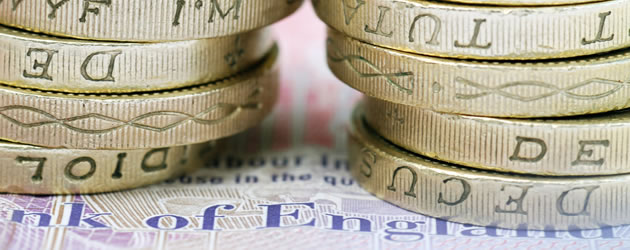Euro Pound Exchange Rate Trends Higher as Energy Crisis Worsens
The Euro Pound (EUR/GBP) exchange rate is making gains so far today, although both Europe and the UK face intensifying energy price concerns. Economic sentiment in the Euro area weakened in August while UK consumer credit dropped as individuals borrowed less.
At the time of writing, EUR/GBP is trading at £0.8557, up 0.2% from today’s opening levels.
Euro (EUR) Wavers Ahead of German Inflation Data
The Euro (EUR) is trading in a mixed range against its peers today. Support for the single currency is limited by economic pressures, but weakness in the US Dollar (USD) lends EUR tailwinds.
Traders may also be optimistic about the EU’s plans to stage an emergency intervention, with the intention of bringing down energy prices. European Commission President Ursula von der Leyen announced yesterday that:
‘We will have to develop an instrument, that will happen in the next days and weeks, which ensures that the gas price will no longer dominate the electricity price.
We’ll have to ensure renewable energies are generated at lower costs, that these costs are transferred to consumers and windfall profits used to help vulnerable households.’
Capping support for the single currency in recent weeks have been soaring energy prices. German power costs for next year have exceeded €1,000 per MWh, for the first time ever.
The Euro is also bolstered today by an improvement in risk sentiment. Markets have calmed and the benchmark 10-year US Treasury bond yield is trading steady.
Hawkish comments from the European Central Bank (ECB) yesterday continue to inspire EUR tailwinds, as policymaker Philip Lane advocated for multiple interest rate hikes.
Pound (GBP) Subdued by Recession Fears
The Pound (GBP) is under pressure from energy price fears and UK consumer credit data today. The latter shows that credit card borrowing rose in July by the largest amount since 2005.
Both headwinds are offset, however, by small indications that things may not be as bad as they seem. Day-ahead gas prices in the UK have dropped by over 20%, as Germany revealed that its storage facilities are at 85% capacity ahead of schedule.
Chris Giles, an economics editor for the Financial Times, commented that ‘once Europe demonstrates it can substitute and get through the winter, the picture can change rapidly… [It’s] very good to see wholesales gas prices plummeting across Europe today.’
Meanwhile, an increase in consumer borrowing leads analysts to consider that UK households are still spending, supporting the economy. On the flip side, the fact they are having to borrow to do so reflects the ongoing cost-of-living crisis, weighing upon GBP somewhat.
The Chief Data and Analytics Officer at credit scoring agency Equifax UK observes: ‘The most vulnerable have run out of quick fixes, which is why we continue to see considerable growth in demand for credit.’
Elsewhere, moderate risk-on flows buoy Sterling, as well as data that shows UK households are managing to save more with banks and building societies.
Euro Pound Exchange Rate Forecast: German Inflation to Influence Trading?
Looking ahead, Germany’s inflation release may affect Euro exchange rates today.
Preliminary data from the bloc’s largest economy is expected to depict an increase in consumer price pressures in August, as the prospect of reduced gas flows drives up energy costs.
If inflation climbs as expected, the single currency may rise on expectations of a hawkish interest rate trajectory from the European Central bank (ECB).
